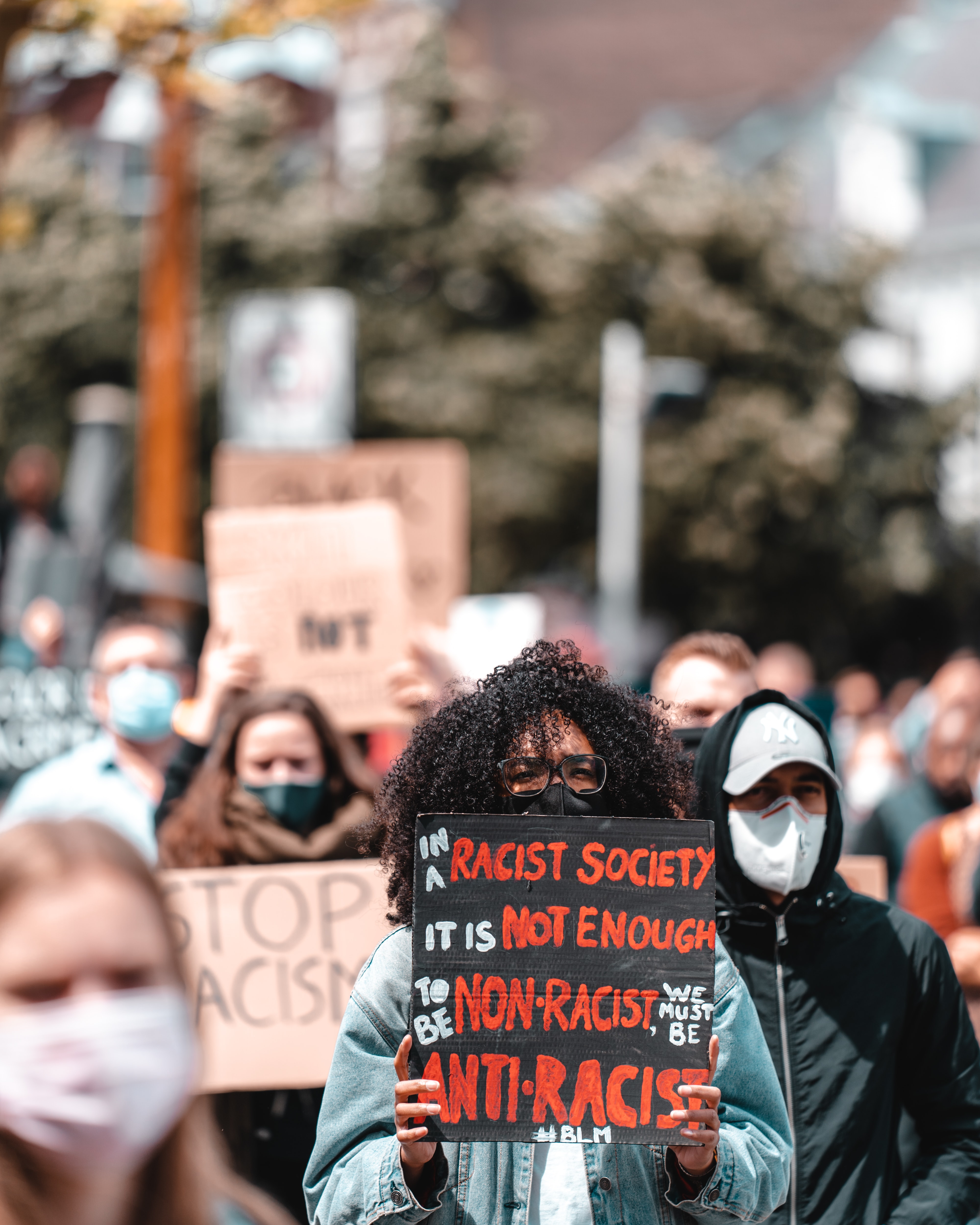In today’s political and cultural climate, we can be left feeling a bit uneasy or just plain confused on how to turn our empathy for racism to an anti-racist way of life. See, having empathy for racism or racist acts is akin to feeling bad that there are melting ice caps in Antarctica. It is a feeling, albeit, compassionate and sincere, but a feeling, nonetheless. If the feelings are not supported by actively doing something to address, combat or solve the issue it is fruitless and leaves us unfulfilled. Don’t get me wrong, having empathy is important, it is needed. After all, if you subscribe to the “I don’t see color, I only see a person’s character” mantras of the world, you aren’t ready for concrete action steps towards becoming an anti-racist. You, my dear, have some reading to do and documentaries to watch. There’s level to this. However, for my people who have done some preliminary ground work, read a few books and have had some uncomfortable and sometimes downright difficult conversations about race with loved ones and friends, these steps are designed to add another tool in your anti-racist arsenal.
- Pace yourself. Learning about 400 years of systemic oppression towards a specific group of people is not only a daunting task, but can also lead to feelings of guilt, rage, denial and frustration. Racism is multi-layered and it permeates almost all the institutions we hold dear in our society, such as education, criminal justice, housing, etc. The list is exhaustive. If you aren’t careful, you will become overwhelmed and disillusioned quickly, which may cause you to go retreating back to the halls of comfortability and cognitive dissonance. Instead, think of an area you feel confident that you can amplify your ally-ship. Perhaps it’s healthcare, or police reform, or food equity. Whatever area you choose, stay committed to working towards actionable change. Over time, you will feel more mentally and emotionally available to add other causes to your plate.
2. Seek out experts and organizations that are already doing the work. Chances are that if it deals with systemic racism, there is some grass root or nationally recognized organization that have logged in many hours in your community, city, or state, working towards dismantling those institutions. Do a quick google search, ask around, attend a meeting and find your tribe. Doing so may provide you with a support system to glean ideas, organize, and build your own stamina towards the issue that you are passionate about.
3. Know your role. Remember, not everyone wants to march in the street with clever signs. Although, there is nothing inherently wrong with marching, in fact, strategic and organized marches help to bring forth the attention many causes need and deserve. However, if you can’t or don’t want to march, that is OK. You can still hep in other ways, such as donating money to a bailout fund for protesters who are arrested, providing water for free to those who march, signing people up to vote, calling politicians and demanding accountability, preparing a meal for grassroots organizers. The list can go on and on. Be creative.
Be the change. I know. It seems like an often overused, idealistic catchphrase, but taking small, incremental steps towards a more perfect union can have a mighty impact. These actions do not have to be monumental, earth shifting events. Rather, they allow us to connect to another human being authentically, openly and honestly. This can include, inviting that Black co worker with whom you have great conversations with at work out for lunch, dinner or to your next yoga session. It can look like joining a book club facilitated by a person of color, or reaching out to your neighbor, who happens to be the only person of color on the block and setting up a play date for your kids. You get the point. Being the change means stepping out of your comfort zone. If it were easy, we would all do these things regularly, but we don’t. Maybe it was how and where we were raised, maybe it was the revisionist history taught in schools, or maybe we have an an unpleasant experience with someone from a different race, or maybe we consume too much of the news that consistently portrays one race unfavorably over another. Whatever the reason, we have been far to secure in our own complacency. We have fallen in love with the agreeable and the security of blissful ignorance that it provides. In doing so, any type of challenge to the ordinary, seems revolutionary. Trust me, it is, but it’s also worth it.
All in all, I still believe there is inherently more good in the world than not, and that good exist in people than not. I know you do too. There is a Chinese proverb that says: The best time to plant a tree was 20 years ago, the second-best time is now. Let us live in the now, shall we? Let’s do good, for good.



